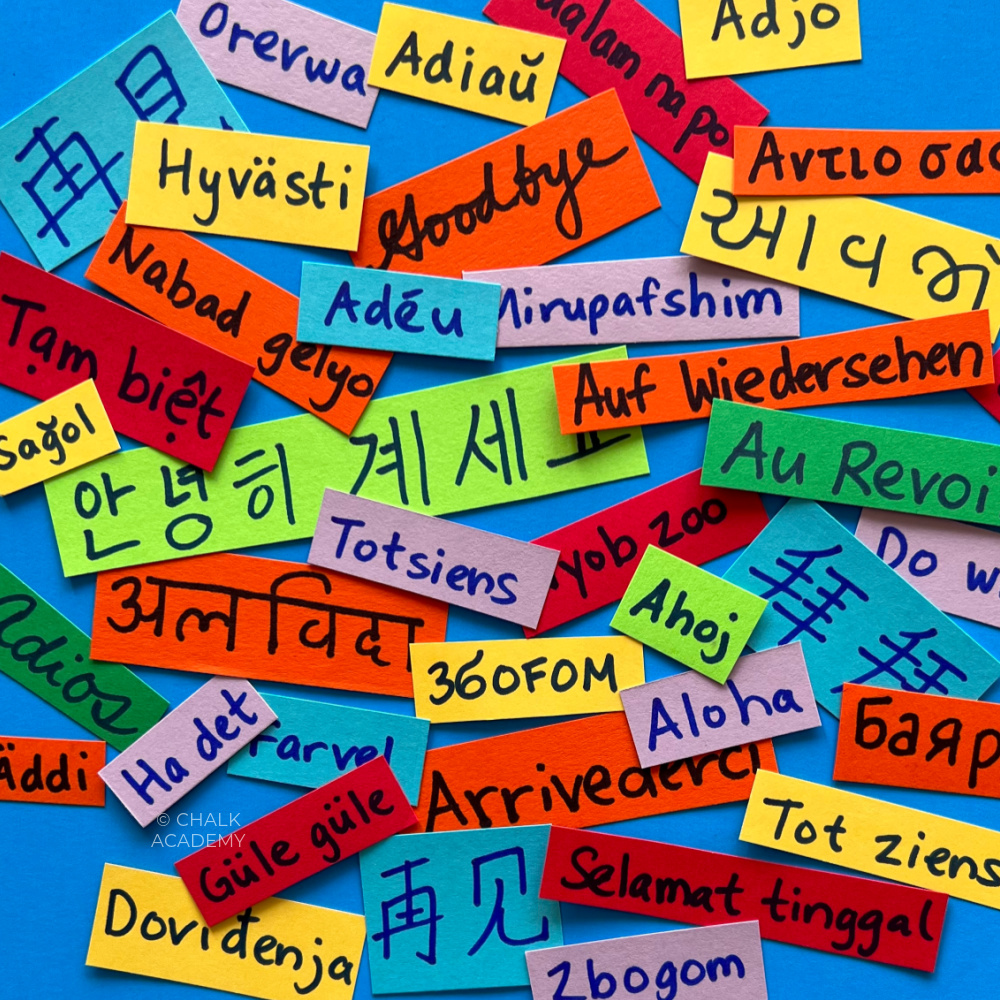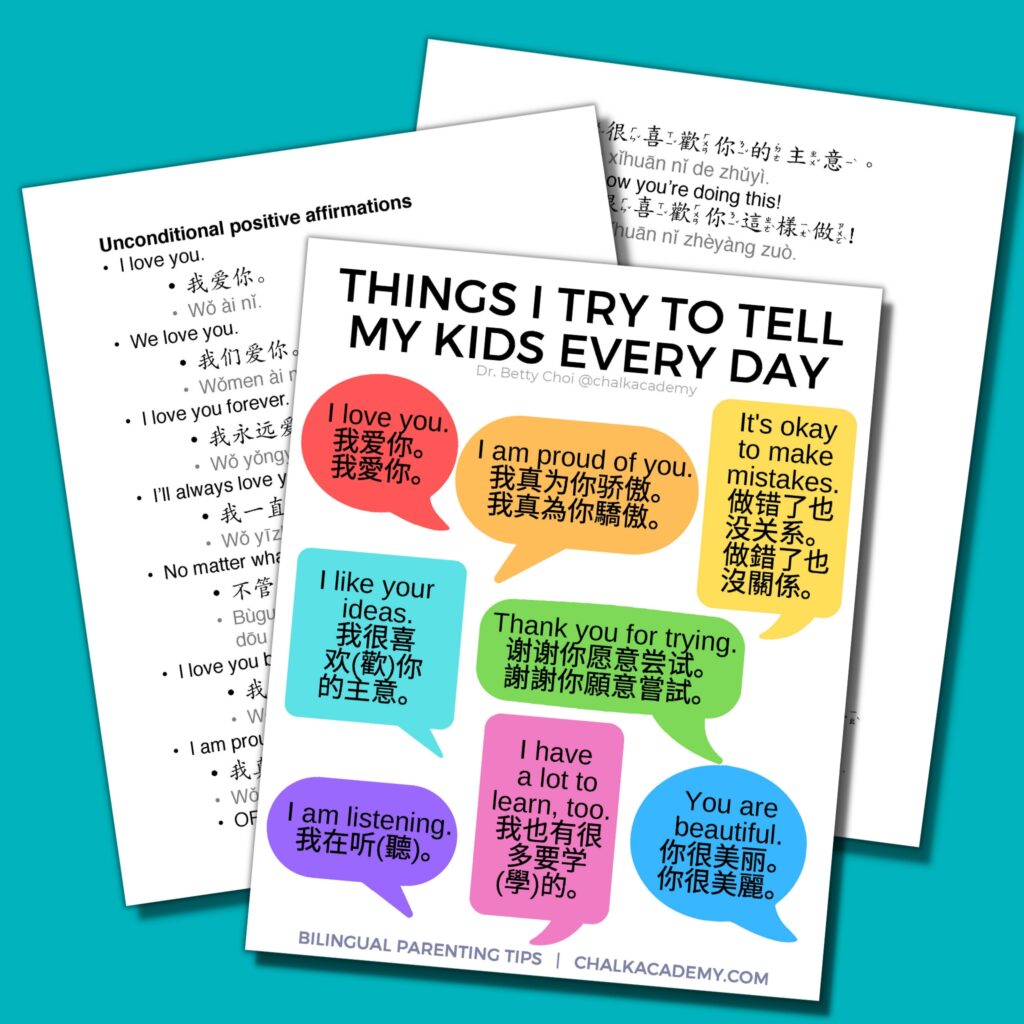Should My Bilingual Family Drop a Language? 6 Reasons To Quit

Should our bilingual family drop a language?
Perhaps you’ve invested in bilingual nannies, books, and fancy gadgets to help your child learn another language. But something has changed. Despite pouring so much heart and soul into raising bilingual kids, you’re wondering: “Should my family drop this language?”
In the past decade, our family has faced this question multiple times. Initially, we started with one language (English). Then we increased to two (English and Korean); scaled back to one (English); went up to two again (English and Chinese); and then maxed out at three (English, Chinese, Korean).
Although we’ve been holding steady with two languages (English and Chinese), we’ve had to adjust our plans along the way.
Consider this: The Risks of Overnurturing with Multilingual Parenting
Life happens

Maybe your family has moved to a new city.
The grandparents aren’t around. Your child has a different au pair. The local bilingual immersion school has closed.
Or you’re just not feeling right about this.
Is speaking a minority language still worth the effort?
Language attrition is often a side effect of life changes, but it can also be a conscious choice.
Raising bilingual kids can be complicated, even if you’re fluently multilingual. Many parents have confessed that the day-to-day downsides overshadow the benefits of being bilingual.
Sunk-cost effect: why it’s so hard to drop a language
Do you have toys in your home that your child never plays with? Gifts and heirlooms that you never use? Unfinished projects that are no longer relevant?
The sunk-cost fallacy can show up in any part of life. Language is no exception.
Often, we hold onto things and experiences because we have previously invested time, money, and energy in them. Unfortunately, the sunk cost fallacy prevents us from letting go and moving forward.
Compared to decluttering a playroom or other physical objects, language can be harder for “KonMari.” Learning to speak, read, and write a language requires dedication and perseverance. Plus, language may be a significant part of your family’s identity.
If you’re considering a language transition, remember that the language will always be a part of you—even if it’s dormant for a while.
Related: Learning How to Declutter After My Immigrant Mother’s Sudden Death
Confronting the all-or-nothing myth
Of course, we shouldn’t give up at the first sign of a setback. And fluency should not be the only goal.
In fact, bilingual families range in fluency. Kids may understand one language but prefer to speak another, and grandparents may understand one language but feel more comfortable speaking another.
Even a small amount of language exposure can be a seed for future learning.
Recommended: Why Books Are the Best Gifts for Bilingual Kids
Why your bilingual family might want to drop a language
Some families can troubleshoot challenges, but others may not have the bandwidth. While encouraging bilingualism is important, we must also respect that each family has different circumstances and relationships.
You may need time to grieve the loss. And you also deserve the grace to explore a new path that better suits your family.
Which of the following resonates most with your bilingual family?
Your child needs only one language
On the surface, this reason might seem straightforward: Your child lives and goes to school with people who don’t speak a certain language, so your child doesn’t need it, right?
If you’re struggling with this decision, language learning is likely more than a practical skill for your family. Instead, the minority language may be a special connection to friends, relatives, or heritage.
Beyond day-to-day communication, does speaking a second language fulfill a deeper, emotional need? How does this compare with everything your family is currently juggling?
This is a good time to re-evaluate your “why”.
Read this: A Letter to My Parents: Why I’m Teaching Your Grandchildren Chinese
You’re struggling to find resources
Access to bilingual books, music, shows, and other resources depends on the language and location.
For example, English, Chinese, and Spanish are the most commonly spoken languages in the United States. As such, bilingual resources in these languages are generally more readily available, like Chinese reading pens and Spanish music sound books. In addition, bilingual immersion schools and fluent nannies are more likely to be part of big cities.
On the other hand, Korean resources for kids and languages like Gujarati and Swahili are much more challenging to find, especially in small American towns.
You’re going over the family budget
For popular languages, free multilingual audiobooks can help lower education expenses.
Also, Netflix shows for kids like Emily’s Wonderlab and Disney Plus movies like Frozen and Wall-E have been translated into Mandarin Chinese, Korean, Spanish, French, and other languages.

However, learning a second or third language can still get expensive. If you and your spouse are not fluent, consider the cost of outsourcing to tutors, tuition, child care, travel, and/or multimedia resources.
Dropping a language might be necessary when the bills pile up.
Your family is too busy

As kids grow up, the schedule can fill up quickly with school, music, sports, playdates, homework, and other activities.
Even if your child has time, you or your partner might have demanding jobs and long work days.
Protecting downtime is also important. Unstructured breaks are crucial for long-term mental and physical health; dropping a language can free up a lot of time.
Your family is feeling disconnected
Everyone has different communication styles. Both partners should feel supported and welcomed.
Some partners find it unnecessary to understand every word and conversation at home. On the other hand, feeling “left out” is common, too. This can get tricky if a partner discourages the unfamiliar language, leading to resentment.
Finally, your child’s experience matters. Children of immigrant parents often feel disconnected from peers who don’t share the minority language. Bonding in the minority language can be difficult when cultural gaps are wide.
In addition, trauma from bullying and painful social encounters can cause a child to avoid the minority language altogether.
You’re beyond exhausted

Many families would agree that parenting in one language is overwhelming enough.
When you’re burned out, switching languages may feel like mental gymnastics.
Each additional language may feel like doubling or tripling the weight of each responsibility.
Dear bilingual families, it’s okay to drop a language
If learning a second, third, or fourth language brings more burden than joy, listen to your gut.
Scale back.
Drop the language.
Give yourself room to breathe and pause. Your family may be heading into a new chapter. A season filled with more time, energy, and peace for each other.
Chances are, the language will still be around if and when your family is ready to try again.
Goodbye. 再见/再見 (Zàijiàn). 안녕히 계세요. Adios! Au revoir!

Have you dropped a language or are you considering it?
What about your family? Please share your experience and what motivated you to make this difficult decision.



My family speaks English and Cantonese. Our daughters are 21mo. and 4yo. so my expectations are a bit low that they will be fluent in Cantonese because of where we live and I am not a native speaker. I figured that the best that I can do is continue to expose them to the language and culture as a non-Chinese parent and primary caregiver. My hubs is fluent and I try to remind him to speak it and I think he has become more cognizant of his role lately. It is definitely hard but I feel it is worth it for them to have some connection as mixed race people. I have already mentally said “no” to them learning Mandarin or Spanish. I will leave that up to schooling and if they want to learn as they get older. It’s just not our wheelhouse.Thanks for the article.
Being bilingual in Chinese and English is different from learning another romantic/ phonetic language. Chinese language demands word recognition of about 3000 characters for true native fluency. I kind of regretted not putting more effort to Chinese learning before the kids mastered English, but am still persevering with Chinese hoping for them to be able to read Chinese newspaper. Teenage son tried third language (Indonesian) in school but will be dropping it next year.
Thank you for this! I know I don’t need permission, but it feels like you’ve given me permission to stop feeling guilty about dropping my family’s language (German) in favor of our local language (Korean). I have a complicated relationship with German, growing up around it, but never studying it (I’m one of those understand it but can’t speak it kids), and I feel so left out of more complex conversations when I visit family in Germany. So I really wanted to learn German alongside my daughter and raise her to be truly bilingual.
…But then we unexpectedly moved to South Korea. It was supposed to be temporary, so I tried to continue with German… but studying German in Korea felt like swimming upstream. My brain was so taxed by the extra mental load of living in a new country where I don’t speak the language… We decided to add Korean… 😅 It took over a year of painfully slow progress at both languages to finally decide to shelve German and focus on Korean while we’re living here. We’re now staying in Korea for at least 4-5 years, likely longer. And if we “whole *ss” one language instead of “half*ssing” two 😂 I think we can make some real progress in that amount of time! I’m sad that my daughter will probably never be fully (natively) bilingual in german since she won’t grow up speaking it. And I’m not sure how fluent either of us will be in Korean. But I *think* I’ve made the right decision for now…?